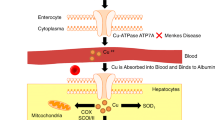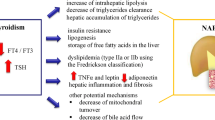Summary
The objective of the study was to assess whether moderate occupational exposure to lead may be associated with early changes in potential target organs (thyroid, testes, kidney, autonomic nervous system). Workers exposed to lead in a lead acid battery factory (n = 98; mean blood lead 51 μg/dl, range 40–75 μg/dl) and 85 control workers were examined. None of the indicators of kidney function (in urine: retinol-binding protein, β2-microglobulin, albumin,N-acetyl-β-d-glucosaminidase; in serum: creatinine, β2-microglobulin), endocrine function (follicle-stimulating hormone, luteinizing hormone, thyroid-stimulating hormone, thyroxine, triiodothyronine) and autonomic nervous system (R-R interval variations on the electrocardiogram) were correlated with lead exposure (blood lead or duration of exposure) or showed significantly different mean values between the exposed group and controls. These results and an assessment of the published data suggest that compliance with the Directive of the Council of the European Communities on lead exposure (health surveillance in workers whose lead in blood exceeds 40 μg/dl and removal from exposure when blood lead exceeds 70–80 μg/dl) would prevent the occurrence of significant biological changes in the majority of lead-exposed workers.
Similar content being viewed by others
References
Araki S, Honma T (1976) Relationship between lead absorption and peripheral nerve conduction velocities in lead workers. Scand J Work Environ Health 4:225–231
Assennato G, Paci C, Baser ME, Molinini R, Candela RG, Altamura BM, Giorgino R (1987) Sperm count suppression without endocrine dysfunction in lead exposed men. Arch Environ Health 42:124–127
Baker EL, Landrigan PJ, Barbour AG, Cox DH, Folland DS, Ligo RN, Throckmorton J (1979) Occupational lead poisoning in the United States: clinical and biochemical findings related to blood lead levels. Br J Ind Med 36:314–322
Bellingham AJ, Weatherall DJ (1984) Erythropoiesis, the red cell, and anaemia. In: Weatherall DJ, Ledingham JGG, Warrell DA (eds) Oxford text book of medicine. Oxford University Press, Oxford, pp 19.8–19.15
Bernard A, Lauwerys RR (1983) Continuous flow system for the automation of latex immunoassay by particle counting. Clin Chem 29:1007–1011
Braunstein GD, Dahlgren T, Loriaux L (1987) Hypogonadism in chronically lead-poisoned men. Infertility 1:33–51
Buchet JP, Reels H, Bernard A, Lauwerys R (1980) Assessment of renal function of workers exposed to inorganic lead, cadmium or mercury vapor. J Occup Med 22:741–750
Cockroft DW, Gault MH (1976) Prediction of creatinine clearance from serum creatinine. Nephron 16:31–41
Cullen MR, Robins JM, Eskenazi B (1983) Adult inorganic lead intoxication: presentation of 31 new cases and a review of recent advances in the literature. Medicine 63:221–247
Cullen MR, Kayne RD, Robins JM (1984) Endocrine and reproductive dysfunction in men associated with occupational inorganic lead intoxication. Arch Environ Health 39:431–440
Ehle AL (1986) Lead neuropathy and electrophysiological studies in low level lead exposure: a critical review. Neurotoxicology 7:203–207
Ehle AL, McKee DC (1990) Neuropsychological effect of lead in occupationally exposed workers: a critical review. Crit Rev Toxicol 20:237–255
Germart JP, Bucher JP, Roels H, Ghyselen P, Ceulemans E, Lauwerys R (1992) Fertility of male workers exposed to cadmium, lead or manganese. Am J Epidemiol (in press)
Goyer RA, Weinberg CR, Victery WM, Miller CR (1989) Lead induced nephrotoxicity: kidney calcium as an indicator of tubular injury. In: Bach P, Lock EA (eds) Nephrotoxicity in vitro to in vivo animals to man. Plenum, New York, pp 11–20
Gustafson A, Hedner P, Schütz A, Skerfving S (1989) Occupational lead exposure and pituitary function. Int Arch Occup Environ Health 61:277–281
Hammond PB, Lerner SI, Gartside PS, Hanenson IB, Roda SB, Foulkes EC, Johnson DR, Pesce AJ (1980) The relationship of biological indices of lead exposure to the health status of workers in a secondary lead smelter. J Occup Med 22:475–484
Hanninen H, Hernberg S, Mantere P, Vesanto R, Jalkanen M (1978) Psychological performance of subjects with low exposure to lead. J Occup Med 20:683–689
He F, Zhang S, Li G, Huang J, Wu Y (1988) An electroneurographic assessment of subclinical lead neurotoxicity. Int Arch Occup Environ Health 61:141–146
Heinegard B, Tiderström G (1973) Determination of serum creatinine by a direct colorimetric method. Clin Chim Acta 43:305–310
Henderson DA (1957) A follow-up of cases of plumbism in children Australasian. Ann Med 3:219–224
Henry RJ (1965) Clinical chemistry: principles and technics, 3rd edn. Harper and Row, New York, pp 292–302
Hilsted J (1984) Testing for autonomic neuropathy. Ann Clin Res 16:128–135
Hogstedt C, Hane M, Agrell A, Bodin L (1983) Neuropsychological test results and symptoms among workers with well-defined long term exposure to lead. Br J Ind Med 40:99–105
Hong C, Hanenson I, Lerner S, Hammond PB, Pesce AJ, Pollak VE (1980) Occupational exposure to lead: effects on renal function. Kidney Int 18:489–494
Huang J, He F, Yigun W, Zhang S (1988) Observations on renal function in workers exposed to lead. Sci Total Environ 71:535–537
Jeyaratnam J, Boey KW, Ong CN, Chia CB, Phoon WO (1986) Neuropsychological studies on lead workers in Singapore. Br J Ind Med 43:626–629
Lancranjan I, Popescu HI, Gavanescu O, Klepsch I, Serbanescu M (1975) Reproductive ability of workmen occupationally exposed to lead. Arch Environ Health 30:396–401
Lauwerys R, Delbroeck R, Vems MD (1972) Automated analysis of 6 aminolevulinic acid in urine. Clin Chim Acta 40:443–447
Lilis R, Gavrilescu N, Nestorescu B, Dumitriu C, Roventa A (1968) Nephropathy in chronic lead poisoning. Br J Ind Med 25:196–202
Lilis R, Fischbein A, Diamond S, Anderson HA, Selikoff IJ, Blumberg WF, Eisinger J (1977) Lead effects among secondary lead smelter workers with blood lead levels below 80 μg/ 100 ml. Arch Environ Health 32:256–266
Lilis R, Valciukas J, Fischbein A, Andrews G, Selikoff IJ, Blumberg W (1979) Renal function impairment in secondary lead smelter workers: correlation with zinc protoporphyrin and blood lead levels. J Environ Pathol Toxicol 2:1447–1474
McGregor AJ, Mason MJ (1990) Chronic occupational lead exposure and testicular endocrine function. Hum Exp Toxicol 9:371–376
Meyer BR, Fischbein A, Rosenman K, Lerman Y, Drayer DE, Reidenberg MM (1984) Increased urinary enzyme excretion in workers exposed to nephrotoxic chemicals. Am J Med 76:989–998
Morgan J, Hartley MN, Miller RI (1966) Nephropathy in chronic lead poisoning. Arch Intern Med 118:17–29
Muijser H, Hoogendijk EMG, Hooisma J, Twisk DAM (1987) Lead exposure during demolition of a steel structure coated with lead-based paints: II. Reversible changes in the conduction velocity of the motor nerves in transiently exposed workers. Scand J Work Environ Health 13:56–61
Omae K, Sakurai H, Higaschi T, Muto T, Ichikawa M, Sasaki N (1990) No adverse effects of lead on renal function in leadexposed workers. Ind Health 23:77–83
Ong CN, Chia KS, Phoon WO, Ong HY (1987) Evaluation of renal function in workers with low blood lead levels. In: Foa V, Emmet EA, Maroni M, Colombi A (eds) Occupational and environmental chemical hazards. Ellis Harwood, Chichester, pp 327–333
Parkinson DK, Ryan C, Bromet EJ, Connell MM (1986) A psychiatric epidemiologic study of occupational lead exposure. Am J Epidemiol 123:261–269
Ramirez-Cervantes B, Embree JW, Hine CH, Nelson KW, Varner MO, Putnam RD (1978) Health assessment of employees with different body burden of lead. J Occup Med 20:610–617
Robins JM, Cullen MR, Connors BB, Kayne RD (1983) Depressed thyroid indexes associated with occupational exposure to inorganic lead. Arch Intern Med 143:220–224
Rodamilans M, Osaba MJM, To-Figueras J, Fillat FR, Marques JM, Perez P, Corbella J (1988) Lead toxicity on endocrine testicular function in an occupationally exposed population. Hum Toxicol 7:125–127
Roels H, Balis-Jacques MN, Buchet JP, Lauwerys RR (1979) The influence of sex and of chelation therapy on erythrocyte protoporphyrin and urinary δ-aminolevulinic acid in lead-exposed workers. J Occup Med 21:527–539
Schaller KH, Gonzales J, Thurauf J, Schiele R (1980) Früherkennung von Nierenschaden bei beruflich gegenüber Blei, Quecksilber und Cadmium exponierten Personen. Zentralbl Bakteriol Mikrobiol Hyg I Abt B 171:320–335
Seppäläinen AM, Hernberg S (1980) Subclinical lead neuropathy. Am J Ind Med 1:413–420
Seppäläinen AM, Hernberg S, Kock B (1979) Relationship between blood lead levels and nerve conduction velocities. Neurotoxicology 1:313–332
Somervaille LJ, Chettle DR, Scott MC, Tennant DR, McKiernan MJ, Skilbeck A, Trethowan WN (1988) In vivo tibia lead measurements as an index of cumulative exposure in occupationally exposed subjects. Br J Ind Med 45:174–181
Stollery BT, Banks HA, Broadbent DE, Lee WR (1989) Cognitive functioning in lead workers. Br J Ind Med 46:698–707
Stollery BT, Broadbent DE, Banks HA, Lee WR (1991) Short term prospective study of cognitive functioning in lead workers. Br J Ind Med 48:739–749
Telisman S, Cuitkovic P, Papic Z, Prpic-Majic C (1990) Semen quality of workers exposed to inorganic lead. Presented at the 23rd International Congress on Occupational Health, Montreal, Canada, September 1990
Teruya K, Sakurai H, Omae K, Higashi T, Muto T, Kaneko Y (1990) Effect of lead on cardiac parasympathetic function. Int Arch Occup Environ Health 62:549–554
Triebig G, Weltle D, Valentin H (1984) Investigations on neurotoxicity of chemical substances at the workplace. V. Determination of the motor and sensory nerve conduction velocity in persons occupationally exposed to lead. Int Arch Occup Environ Health 53:189–204
Tucker S, Boyd PJ, Thompson AE, Price RG (1975) Automated assay of β-N-acetylglucosaminidase in normal and pathological urines. Clin Chim Acta 62:333–339
Tuppurainen M, Wagar G, Kurppa K, Sakari W, Wambugu A, Froseth B, Alho J, Nykyri E (1988) Thyroid function as assessed by routine laboratory tests of workers with long-term lead exposure. Scand J Work Environ Health 14:175–180
Vacca CV, Hines JD, Hall PW III (1986) The proteinuria of industrial lead intoxication. Environ Res 41:440–446
Verschoor M, Wibowo A, Herber R, Hemmen J Van, Zielhuis R (1987) Influence of occupational low-level lead exposure on renal parameters. Am J Ind Med 12:341–351
Wedeen RP (1982) The role of lead in renal failure. Clin Exp Dialysis Apheresis 6:113–146
Wedeen RP, Maesaka JK, Weiner B, Lipat GA, Lyons M, Vitale LF, Joselow MM (1975) Occupational lead nephropathy. Am J Med 59:630–640
Wildt K, Berlin M, Isberg PE (1987) Monitoring of zinc protoporphyrin levels in blood following occupational lead exposure. Am J Ind Med 12:384–398
Williamson AM, Teo RKC (1986) Neurobehavioural effects of occupational lead exposure. Br J Ind Med 43:374–380
Wooller K, Melamed S (1978) Simple tests for monitoring excessive lead absorption. Med J Aust 1:163–169
World Health Organization (1980) Recommended healthbased limits in occupational exposure to heavy metals. (Technical report series 647) World Health Organization, Geneva
Author information
Authors and Affiliations
Rights and permissions
About this article
Cite this article
Gennart, JP., Bernard, A. & Lauwerys, R. Assessment of thyroid, testes, kidney and autonomic nervous system function in lead-exposed workers. Int. Arch Occup Environ Heath 64, 49–57 (1992). https://doi.org/10.1007/BF00625951
Received:
Accepted:
Issue Date:
DOI: https://doi.org/10.1007/BF00625951




